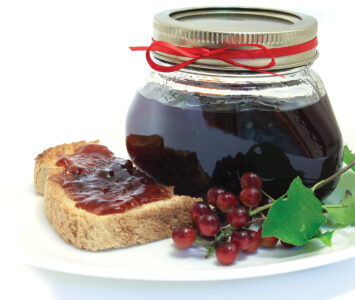Lately, more and more people hove begun to understand just how limited — in both variety and nutritional value — our “modern” diets have become. This realization has sparked a new and widespread interest in the culinary and therapeutic uses of herbs . . . those plants which — although not well known today — were, just one short generation ago, honored “guests” on the dinner tables and in the medicine chests of our grandparents’ homes. In this regular feature, MOTHER EARTH NEWS will examine the availability, cultivation, and benefits of our “forgotten” vegetable foods and remedies and — we hope — help prevent the loss of still another bit of ancestral lore.
I’ve grown common thyme (Thymus vulgaris) in my garden for five years . . . and, with each new season, I’ve found more and more uses for the hardy plant’s delicious leaves.
The herb is not a fussy crop to raise: It actually likes rather poor (but well-drained) soil. In fact, if the earth is too rich, thyme will grow tall and rangy . . and its usually strong, clovelike flavor will suffer.
Propogate and Preserve Thyme
There are many varieties of thyme: Woolly and creeping species are grown for ground covers . . . common thyme is noted for its aroma and flavor . . . silver and lemon types are primarily planted as ornamentals. (Lemon thyme has wonderfully fragrant foliage . . . and — as its tiny gray green leaves are variegated with yellow — is also a very attractive addition to any garden.)
The semi-woody shrub’s small bluish-purple flowers usually appear in June or July and sometimes last well into September.
To propagate this pungent plant, I soak seeds for 24 hours, then start them in the greenhouse or on my windowsill in a mixture (approximately four to one) of potting soil and sand.
Another method of increasing your number of thyme “bushes” is to cover the side branches of a mature plant with soil, leaving the tips exposed. When the limbs put down roots, simply snip them from the “parent” and set them out. In addition, I’ve often divided up my thyme’s root clumps and successfully replanted the pieces.
Fresh herbs do taste best, of course, but thyme dries well for winter use, too. The flavorful oil (contained in tiny glands in the plant’s leaves) is strongest just before the flowers begin to bloom. I harvest my crop (with a sharp knife or scissors) on a clear morning when the leaves are free from dew. Then I wash the greenery, and — after shaking off all the excess water — spread it on a wire or cheesecloth frame to dry. (As an alternative, you can tie the foliage in bunches and hang them up in a dark, well-ventilated place.) When the leaves are crisp and crumbly, I store them in airtight containers away from any bright sunlight, which could bleach out their color.
Many Uses of Thyme
Besides providing flavoring for vegetable juices, stuffings, soups, stews, beef, fish, poultry, and vegetables, this marvelous herb can be used as a tea, in potpourri, in bath water and for jellies, vinegars, and butters. Its fresh or dried leaves will even help repel white cabbage butterflies from your garden!
Sumerians used thyme for medicinal purposes over 5,000 years ago, and — in the Middle Ages — it was prescribed as a cure for nightmares. The herb is also said to aid in the digestion of fatty foods and to stimulate the appetite. Furthermore, though I can’t attest to any of the claims, folk medicine books mention thyme as a remedy for diarrhea, gastritis, warts, and coughs.
However, don’t drink any more than one cup of thyme tea a day as excessive consumption of this beverage can lead to flu-like symptoms and overstimulation of the thyroid gland. (The tea is made by steeping 1/2 teaspoon of dry or 1 teaspoon of fresh leaves in 1 cup of freshly boiled water for 3 to 5 minutes.)
If you’re unable to fiind sources of thyme in your area, here are two companies that sell thyme seeds. Johnny’s Selected Seeds and Burpee.
I certainly hope you’ll give this tasty, versatile herb a try and enjoy it as much as I do!
For more helpful guides on growing and using herbs see How to Grow and Enjoy Bergamotand Grow Sage in Your Herb Garden to Symbolize Success.









